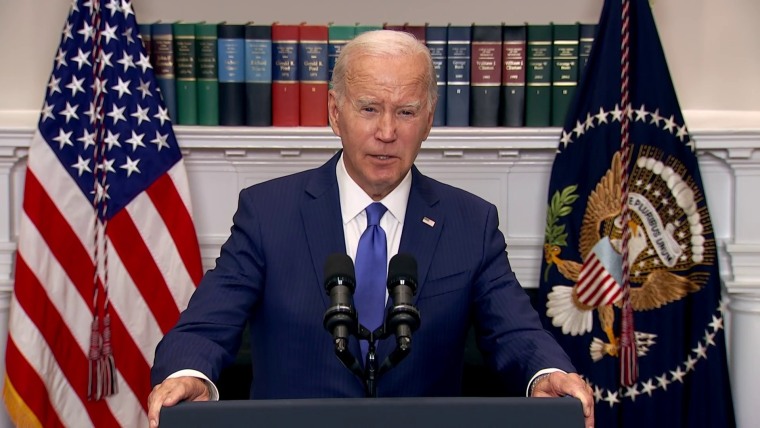The question of how countries around the world will incorporate artificial intelligence into their military technology and strategy is an ethical minefield. But a three-star Air Force general recently declared that the U.S. had a special advantage over its adversaries in navigating those dilemmas: It’s guided by the right holy books.
As The Washington Post reported, Lt. Gen. Richard G. Moore Jr. made troubling remarks at the Hudson Institute last week while discussing the Defense Department’s views on autonomous warfare. “Regardless of what your beliefs are, our society is a Judeo-Christian society, and we have a moral compass. Not everybody does,” Moore said, per the Post. “And there are those that are willing to go for the ends regardless of what means have to be employed.” He added that the future of AI in warfare will be determined by “who plays by the rules of warfare and who doesn’t. There are societies that have a very different foundation than ours.”
Moore’s comments express a clash-of-civilizations-style jingoism that was more common to hear during the so-called war on terror.
Moore might feel comforted by this claim. I certainly don’t.
Moore is entitled under military rules to describe his religious beliefs, but it is striking to hear a high-level officer in the military attribute the United States’ outlook on use of force to religious texts. The U.S. is supposed to be a secular state, and one would hope that an officer representing the state would view the country’s ideological outlook in nonreligious terms — such as adhering to international law.
Instead, Moore’s comments express a clash-of-civilizations-style jingoism that was more common to hear during the so-called war on terror. His assertion that the United States’ opponents may lack moral compasses, due to a rejection of Judeo-Christian values, is a remarkable claim.
What countries is he thinking of? Moore never spelled it out. But in an emailed statement to the Post elaborating on his comments at the Hudson Institute, he seemed to think none of the United States’ adversaries fit the bill for a country with a moral compass: “The foundation of my comments was to explain that the Air Force is not going to allow AI to take actions, nor are we going to take actions on information provided by AI unless we can ensure that the information is in accordance with our values,” Moore wrote. “While this may not be unique to our society, it is not anticipated to be the position of any potential adversary.”
The first thing that pops to mind to contradict Moore’s claim is Russia, one of the United States’ top-tier adversaries in the global arena. Russian President Vladimir Putin is not only deeply devoted to the Russian Orthodox Church, but he has specifically cited his Christian beliefs to justify and whip up domestic support for his war of aggression in Ukraine. What does Moore make of Putin’s version of Christian values and how they affect that country’s policies?
Then there’s another deadly invasion on false pretexts in the 21st century, one conducted by another deeply religious Christian leader: George W. Bush. Not only did Judeo-Christian beliefs not prevent the war in Iraq, but some analysts believe that Bush’s convictions in his aggressive foreign policy were underpinned by the belief that he was carrying out God’s will. If that’s the case, then adherence to his faith only intensified a morally abhorrent foreign policy that killed hundreds of thousands of innocents.
Moore might’ve been thinking primarily about China, the only country in the world that’s likely to rival the United States’ military power in the coming years and eschews religion under the Chinese Communist Party. But I’d rate China’s competing geopolitical interests and its increasingly apparent appetite for projecting its power globally as far greater reasons for concern about the way it may approach warfare than its lack of religiosity.
For powerful countries like the U.S. and China, the most relevant question is what values they assert and adhere to when it comes to competing for resources and influence on the global stage. While the spiritual and cultural history of a country can influence what those values look like, neither religion nor the absence of it guarantees that those values are virtuous or immoral. In general, great power conflicts are ugly — and religious values and tribalism of any kind can be used to rationalize or push back against the brutality these conflicts breed.
Moore’s comments make me uneasy because militaries around the world have already developed the capacity to deploy lethal drones that can operate independently of human input once activated — including the ability to identify and kill their own targets. The introduction of such weapons should raise all kinds of questions about what safeguards exist to prevent civilian casualties, or if autonomous weapons should even be legal at all. We could be on the brink of a sea change in how wars are fought. What we need now from American military leadership is not self-assuredness about civilizational superiority, but humility in the face of extremely complex questions that nobody in the world has good answers to yet.


